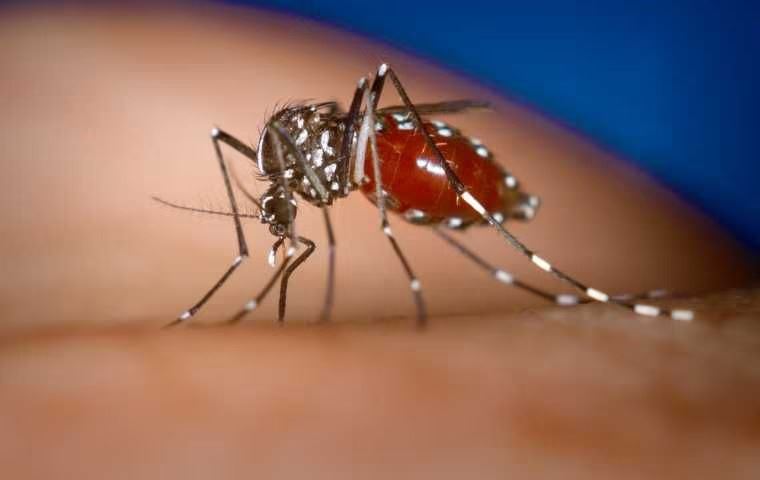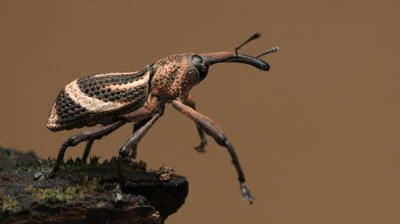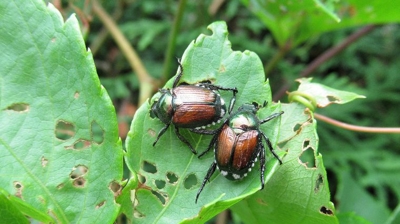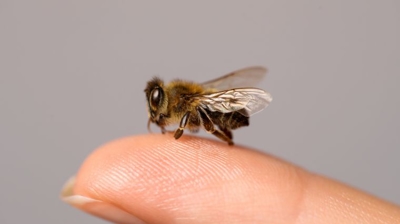
Mosquitoes

What Are Mosquitoes?
Mosquitoes are small flying insect pests belonging to the family Culicidae. They are known for their ability to feed on the blood of humans and animals. There are thousands of species of mosquitoes, and they are found in various habitats across the world, ranging from tropical regions to temperate zones. Female mosquitoes typically require blood to obtain nutrients for egg development, while male mosquitoes primarily feed on nectar.
These insects have a distinctive proboscis, a long, slender mouthpart used to pierce the skin of their hosts and extract blood. Mosquito bites can cause itching, redness, and in some cases, transmit diseases like malaria, dengue fever, Zika virus, West Nile virus, and others. They locate their hosts primarily by detecting body heat, carbon dioxide, and certain chemicals emitted by mammals.
Mosquitoes undergo a complete metamorphosis, starting as eggs laid in water, progressing to larvae, then pupae, before emerging as adults. Their breeding grounds are often stagnant water sources such as ponds, marshes, and even small pools of water that collect in various containers. Controlling mosquito populations often involves managing their breeding sites and using measures like insecticides or biological controls to reduce their numbers and mitigate disease transmission.
Learn more: Natural Mosquito Repellents
Are Mosquitoes Harmful?
Mosquitoes are considered harmful for several reasons:
- Disease Transmission: Perhaps the most significant reason for their harmfulness is their ability to transmit diseases. Mosquitoes can carry and spread various pathogens, including viruses, bacteria, and parasites, to humans and animals through their bites. Diseases transmitted by mosquitoes include malaria, dengue fever, Zika virus, West Nile virus, yellow fever, chikungunya, and others. These diseases can range from mild to severe and, in some cases, can be fatal.
- Allergic Reactions: Mosquito bites can cause allergic reactions in some individuals, resulting in swelling, redness, itching, and discomfort. For some people, severe allergic reactions to mosquito saliva can lead to more serious symptoms.
- Disruption of Daily Life: Mosquitoes can disrupt outdoor activities and affect quality of life in regions where they are abundant. Their presence can limit outdoor recreation, especially during dawn and dusk when they are most active.
- Impact on Livestock and Wildlife: Mosquitoes can also be harmful to livestock and wildlife. They can transmit diseases to animals, affecting agricultural productivity and wildlife populations.
- Economic Impact: Mosquito-borne diseases can have significant economic implications due to healthcare costs, loss of productivity, and the resources required for disease prevention and control measures.
Efforts to control mosquito populations, such as using insecticides, mosquito nets, eliminating breeding sites, and developing vaccines, aim to reduce the harm caused by these insects.
Learn more: What Diseases Do Mosquitoes Carry?
Types of Mosquitoes
Mosquitoes belong to the family Culicidae and are known for their diversity, with over 3,500 species recognized worldwide. These species can be classified into several genera, each with distinct characteristics. Here is an overview of some of the major genera and types of mosquitoes:
- Anopheles Mosquitoes: Anopheles mosquitoes are infamous for transmitting malaria, a deadly disease caused by Plasmodium parasites. They have a distinctive long proboscis and are often found in areas with stagnant water, such as ponds and swamps. There are approximately 430 species of Anopheles mosquitoes.
- Aedes Mosquitoes: Aedes mosquitoes are responsible for spreading diseases like dengue fever, Zika virus, and chikungunya. They have distinctive black and white markings on their bodies and are known for their aggressive daytime biting habits. Common species within this genus include Aedes aegypti and Aedes albopictus.
- Culex Mosquitoes: Culex mosquitoes are widely distributed and can transmit diseases like West Nile virus and filariasis. They are often found in urban and rural areas and are recognized by their brownish coloration and a prominent proboscis. Culex pipiens and Culex quinquefasciatus are common species in this genus.
- Mansonia Mosquitoes: Mansonia mosquitoes are known for their distinctively curved proboscis and are often found in freshwater habitats such as swamps and marshes. Some species of Mansonia are known to transmit various forms of encephalitis.
- Coquillettidia Mosquitoes: These mosquitoes are known for their unique resting posture, with their bodies forming an angle to the surface they rest on. Coquillettidia mosquitoes are primarily found in tropical and subtropical regions and can transmit diseases like encephalitis.
- Culiseta Mosquitoes: Culiseta mosquitoes are primarily found in North America. They prefer to lay their eggs in temporary pools and are often associated with bird habitats. While they are not major disease vectors, they can transmit diseases like Western Equine Encephalitis Virus.
- Toxorhynchites Mosquitoes: Unlike most mosquitoes, Toxorhynchites mosquitoes do not feed on blood; they primarily feed on nectar and other sugary substances. They are considered beneficial as they prey on the larvae of other mosquito species.
- Mimomyia Mosquitoes: This genus includes species that are found in Africa and are known for their role in the transmission of various types of filarial parasites.
- Uranotaenia Mosquitoes: Uranotaenia mosquitoes are relatively small and are known for their distinctive shape. They breed in small, shaded pools and are found in various parts of the world.
Anopheles gambiae Complex: Within the Anopheles genus, the Anopheles gambiae complex is particularly important as it includes species responsible for the transmission of malaria in Africa. This complex consists of several sibling species, including Anopheles gambiae and Anopheles funestus.
While these genera provide a general framework for categorizing mosquitoes, there is significant diversity within each genus, with various species exhibiting different behaviors, habitats, and disease transmission capabilities. Understanding the specific mosquito species in a given region is crucial for effective mosquito control and disease prevention efforts.
Mosquito Identification
Mosquitoes are small insects, typically measuring about 3 to 6 millimeters in length. They have slender bodies divided into three segments: head, thorax, and abdomen. Their body coloration can vary, but they often appear gray or brown. They have long, thin legs that they use for standing, walking, and taking flight.
One of their most distinctive features is their proboscis, a specialized mouthpart used for feeding on blood. This elongated structure, found in the females (males feed on nectar), is designed for piercing the skin of their hosts and extracting blood.
Mosquitoes also have a pair of wings covered in scales, which help them fly and maneuver. Their antenna are often quite long and are used for sensing chemicals, heat, and moisture in the air, aiding them in finding their hosts. Overall, their appearance may differ slightly depending on the species, but these features are common among most mosquito varieties.
Learn more: What Do Mosquitoes Look Like?
Mosquito Habitat
Mosquitoes thrive in various environments worldwide, preferring areas with standing water where they can breed and lay their eggs. Here are some common places where you might encounter mosquitoes:
- Ponds and Lakes: Bodies of water, especially those with stagnant or slow-moving water, provide an ideal breeding ground for mosquitoes.
- Swamps and Wetlands: These areas with marshy or swampy conditions are prime habitats for mosquitoes due to the presence of standing water.
- Puddles and Containers: Even small collections of water, like puddles, birdbaths, flower pots, or clogged gutters, can serve as breeding sites for certain mosquito species.
- Forests and Wooded Areas: Mosquitoes often inhabit wooded regions, particularly areas with dense vegetation where they can find shelter and breeding grounds in small pools or leafy areas.
- Urban Environments: In cities, areas with poor drainage systems or neglected containers (tires, buckets, discarded containers) that collect water can become breeding sites for mosquitoes.
- Dusk and Dawn: Mosquitoes are most active during these times, but they can be present at any time of the day, especially in shaded or damp locations.
- Warm Climates: Mosquitoes are prevalent in warm and humid regions, though they can be found in various climates around the world.
Taking measures to eliminate standing water around your home, using mosquito repellents, wearing long-sleeved clothing, and using mosquito nets can help reduce the likelihood of encountering these insects.
Learn more: How High Do Mosquitoes Fly?
Mosquito Diet
Mosquitoes have varying dietary habits based on their life stage and sex.
- Female mosquitoes: They typically feed on plant nectar and other sugary substances for energy. However, female mosquitoes of many species require a blood meal to develop their eggs. They use specialized mouthparts called proboscis to pierce the skin of animals, including humans, and feed on blood. The proteins and nutrients obtained from the blood are essential for egg development.
- Male mosquitoes: They primarily feed on plant nectar and do not require blood for reproduction. Their diet mainly consists of sugary liquids obtained from flowers and plants.
- Mosquito larvae and pupae: Mosquito larvae and pupae live in water and feed on microorganisms, algae, organic matter, and other small particles present in the water. They filter-feed using mouthparts designed for collecting food particles from the water.
While adult female mosquitoes require blood for egg development, not all mosquito species feed on humans or larger animals. Some species feed on reptiles, birds, amphibians, or mammals other than humans.
Learn more: What Do Mosquitoes Eat?
Mosquito Life Cycle
The life cycle of a mosquito consists of four stages: egg, larva, pupa, and adult. This cycle can vary in duration depending on factors like temperature and mosquito species.
- Egg Stage: Female mosquitoes lay their eggs on or near water. These eggs can be laid singly or in clusters and vary in appearance depending on the species. They hatch when exposed to water, and the time taken for eggs to hatch can range from a few days to several weeks.
- Larva Stage: Once the eggs hatch, they enter the larval stage. Mosquito larvae, often called "wrigglers," live in the water and feed on microorganisms and organic matter. They molt several times as they grow. Larvae have distinct characteristics, such as a segmented body, a head with mouthparts for feeding, and a siphon for breathing at the water surface.
- Pupa Stage: After the larval stage, mosquitoes enter the pupal stage. Mosquito pupae, also known as "tumblers," do not feed during this stage. They are relatively inactive and appear comma-shaped, floating in the water. This stage is a transformative phase during which the mosquito undergoes metamorphosis, developing into its adult form.
- Adult Stage: Once the transformation is complete, the adult mosquito emerges from the pupal exoskeleton onto the water's surface. It takes a short time for the mosquito's body to dry and harden before it can fly and begin seeking a blood meal for females (in species that feed on blood) and nectar for males. Adult mosquitoes mate, and the life cycle continues as females seek out suitable sites to lay their eggs, restarting the cycle.
The duration of each stage varies among mosquito species and is influenced by environmental conditions like temperature, humidity, and the availability of suitable breeding sites. In optimal conditions, the life cycle from egg to adult can take as little as a week or two.
Learn more: What Eats Mosquitoes?
Learn more: Do Bats Eat Mosquitoes?

Hear From Our Happy Customers
-
"Wonderful Service"
Wonderful service. Jarvis is great. Took care of everything I needed. Thank you!
- Henry P. -
"Exceeds Expectations"
I can’t say enough positive things about this company... The tech that came out, Jarvis went above and beyond my expectations. Thank you guys, I will continue using your services.
- Jake M. -
"Great Communication"
Tech was on time, communication was great, and he accommodated my needs.
- Alonzo W. -
"Very Knowledgeable"
The tech that arrived was courteous, professional, and very knowledgeable. He was Great.
- Uerial I. -
"Professional & Considerate"
I’m pleased with Miche services. Jarvis came today. Professional and considerate. Thank you!
- Judy B. -
"Fantastic & Patient"
Jarvis was fantastic and patient. He answered my questions with an in-depth explanation and addressed all of my areas of concern. Would love for him to be my assigned tech going forward. Well done!
- Yonnette M.



